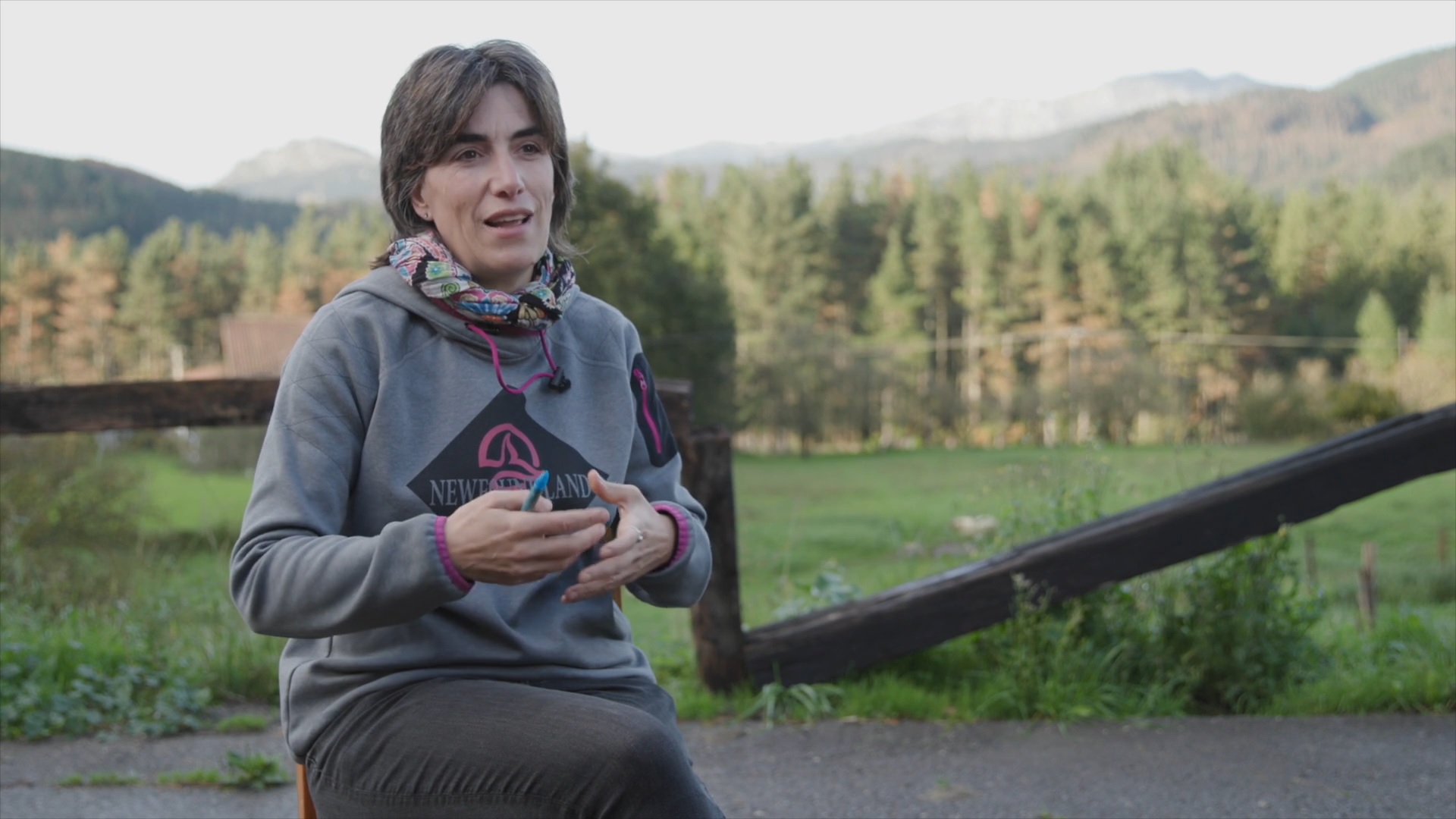
Puy Arrieta, shepherdess, Ipiñaburu cheese dairy, vice-president of the Zeanuri Livestock Farmers’ Association – Zeanuri, Bizkaia
Puy is a woman dedicated to artisanal cheese making, whose family business revolves around direct sales from her own farmhouse. She studied Social Work and worked in other sectors, but the call of the farmhouse was stronger. At the age of 24, she decided to stay, just when the “mad cow” crisis and the change in consumer habits shook the family model, making a commitment to the native breed of sheep (latxa) and artisan cheese making.
Cheese not only represents their economic livelihood, but also a way of life rooted in the territory, in which direct contact with customers has generated bonds of trust and closeness. Although she sells some of her products in small shops in the Arratia region and occasionally attends fairs, most of her sales are made from home, which brings advantages, but also limits mobility and conditions domestic life.
She participates in organisations such as ACOL – Association of Latxa and Carranzana Sheep Breeders, the Idiazabal Designation of Origin and the Zeanuri Breeders’ Society, where she is vice-president. She recognises that many women have access to these spaces due to parity quotas, but she also stresses the importance of being present, of occupying these historically masculinised spaces.
The gender issue runs through her experience. She recalls how her mother, despite working on the family livestock farm – she also paid social contributions and half of the farm was in her name – was officially listed as a “housewife”, a reflection of the structural invisibility of women’s work in the rural world. Although progress has been made, resistance still persists today: from explicit sexist comments to questions about the legitimacy of a woman who presents herself as a “shepherdess”. She, however, defines herself firmly: “I am not the shepherd’s wife, I am the shepherdess of Ipinaburu”.
From her perspective, many women in the sector tend to identify with small-scale production models, oriented towards sustainability and direct sales. In contrast to the capitalist and masculinised model that prioritises profitability and expansion, she believes that the agroecological approach not only has a greater affinity with women, but also represents a possible way to transform the agri-food system as a whole.
She defends an extensive, local production model, in which women transform the small into something big. However, she regrets that public policies do not always favour those who, like her, work from the bottom up. The formalities, regulations and uniform treatment end up suffocating small producers, while the big ones are given easier access, and she calls for greater institutional sensitivity towards those who work on a small scale, from an artisanal and local approach.
The issue of generational transmission appears to be a key issue. Aware that livestock farming life is demanding and vocational, she does not necessarily expect her children to continue with the activity, but she does strive to educate them in equality and in the value of rural work. Both her daughter and son are familiar with the farm and participate in its tasks, although each of them is gradually shaping his or her own path.
Today, her focus is not only on gender demands, but also on the defence of the first sector as a way of life, of managing the territory and the community. She conveys a strong sense of identity and pride, and recognises the women in her family as a constant source of knowledge, strength and character. She believes that there is still much to be done to make the work of the first sector visible and to value it, and that it is necessary to continue fighting, both on a daily and collective basis.
